Fellowship a “Cornerstone” of Career Engaging Others
February 24, 2023
Share
C&S Fellow Crawford Carpenter is always looking for ways to improve.
When he was young, he focused his energy on sports and school. He attended undergraduate school at the University of Wisconsin on an Athletic Scholarship in track. His mother, who graduated from Loyola University in Chicago in 1936, set a strong example for the power of pursuing education. And while Mr. Carpenter didn’t fully understand just how impressive his mother’s accomplishment was at the time, her determination instilled a passion in him for seeking opportunities to improve—for himself and for others. The family pursuit of education continued with his wife and daughter each earning master’s degrees and their son earning a Ph.D. Even Mr. Carpenter’s older broth holds a Ph.D.
Mr. Carpenter was awarded an MLK Fellowship from the Institute for Citizens & Scholars (then the Woodrow Wilson National Fellowship Foundation) in 1969. He attended the University of Wisconsin to pursue a master’s degree in business administration.
“The Fellowship was the cornerstone of my business career,” reflects Mr. Carpenter. “It opened doors that may not have been available to me without the Fellowship.”
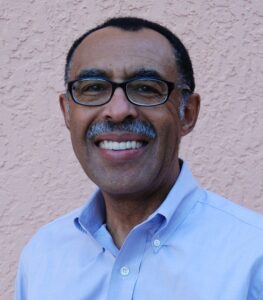 The Fellowship specifically supported Black Vietnam veterans pursuing graduate degrees that prepared them for careers in the service of society. When it comes to business, Mr. Carpenter feels that it is incumbent on those in the business community to make things better than when they arrive. “Businesses can be good corporate citizens by providing meaningful employment that enables individuals to support their families. And that meaningful employment can be the foundation of a solid family structure.” The key for the business community is to embrace a diverse workforce.
The Fellowship specifically supported Black Vietnam veterans pursuing graduate degrees that prepared them for careers in the service of society. When it comes to business, Mr. Carpenter feels that it is incumbent on those in the business community to make things better than when they arrive. “Businesses can be good corporate citizens by providing meaningful employment that enables individuals to support their families. And that meaningful employment can be the foundation of a solid family structure.” The key for the business community is to embrace a diverse workforce.
Throughout his career in the paper recycling industry, he looked for ways to bring more people—especially women and people of color—into companies and provide them with opportunities to better themselves. He did this in big and small ways. While in Philadelphia as the controller, thanks to a suggestion from his wife, Toni, he made sure there were Ms. Magazines in the waiting area of the office. He also taught a two-month course for employees at their Philadelphia plant, a majority of whom were people of color. The course taught these employees about the larger business environment & administrative functions of the company while providing resources for continuing education. One Black woman who took the course went on to take other courses and become a major administrative contributor in the main office.
“She said that her involvement in that course changed her life. And that really meant a great deal,” recalls Mr. Carpenter. “I can picture that woman now. She struggled a little bit and I kept telling her, ‘no, you can do it. Be patient, go to night school, do these things.’ And she was a success.”
As a leader and regional vice president, Mr. Carpenter empowered his employees to make inclusive decisions. “I felt very strongly that those of us who were people of color needed a place at the table. And luckily, I had that place,” he said. “When I was in a position of hiring and firing, those that reported to me knew that we had a big tent and that they were expected to hire with a big tent mentality. And I’ve got to tip my hat to them, they did.”
ISRI Lifetime Achievement Award: Crawford Carpenter
Crawford Carpenter was given ISRI’s Lifetime Achievement Award in 2017. Mr. Carpenter received the award for his lifetime of dedication to the education and preparation of the next generation recyclers, researchers, and citizens.
Mr. Carpenter also used his position in business to extend educational opportunities to young people and veterans. While he served as the president of the Institute of Scrap Recycling Industries’ (ISRI) recycling and research foundation he spun up a fellowship for veterans. The idea, again, was inspired by his wife. The fellowship, which has been running since 2015, provides a stipend, renewable for up to four years, to help offset the cost of undergraduate education for those who were enlisted personnel.
Also with ISRI, Mr. Carpenter was involved with the JASON Learning project. The project created a school curriculum to help educators teach kids about the importance of recycling and the recycling industry. “The purpose of JASON was to show that we’ve got people with diverse backgrounds that are involved in playing a significant role in the sustainability and recycling movement,” says Mr. Carpenter. “I just thought it was so neat to work with educators and those on the intellectual side of getting kids involved. And as soon as they said kids, I said, ‘it’s simple. You talk to them, you sit down with them, and you show them.”
This process of showing is exactly how Mr. Carpenter tries to engage young people in the civic process. Mr. Carpenter regularly serves as an election clerk and inspector in his California district and often notices the new young clerks sitting on the side.
“The first time I saw that, I said to the election inspector, ‘do you mind if I bring those youngsters to the various election stations? We need to show them what we do. And then after we show them what we do, let’s look over their shoulder and let them perform the various tasks,’” recalls Mr. Carpenter. “And the election inspector reluctantly said yes.”
When he took the reigns as an inspector for other elections, he made sure to give the younger participants an active role in the process:
“in effect, I asked the adults to step back and for the youngsters to take over.”
He’s also brought his grandson along to polling stations to view the election process. After watching people vote and his grandfather work from 6 am to 10 pm, he asked if he could return for the next election when he was old enough to serve as a clerk. He has now clerked for three elections and been paid for his service.
Gen Z is eager to help Arizona. All we need are opportunities to lead
Mr. Carpenter and his wife have also taken their grandchildren to the state Capitol to meet their representatives and assembly members. A visit to their state senator was so successful that they also arranged for a visit for the senator to their grandson’s school, hosting a mini-town hall for the students. Mr. Carpenter’s grandson is now a freshman in college majoring in government.
These seemingly small acts introduced their grandchildren to civics in a way that was accessible, fun, and memorable. They are examples of the ways we can all show up as civics teachers for the next generation.
“Young adults are our future,” says Mr. Carpenter. “I think that passion for education and improvement comes from my mother as well as my father. It’s up to our older generations to get our youth engaged.”
Even now, Mr. Carpenter is actively looking for ways to improve his community. He currently serves as the Chair of the Community Advisory Board for Contra Costa County, CA. The focus of the Board is to provide services like housing, employment, and mental health for ex-offenders and returning citizens—an overwhelming majority of which are people of color—through collaborative efforts.
MLK Fellowship: 55 Years of Leadership
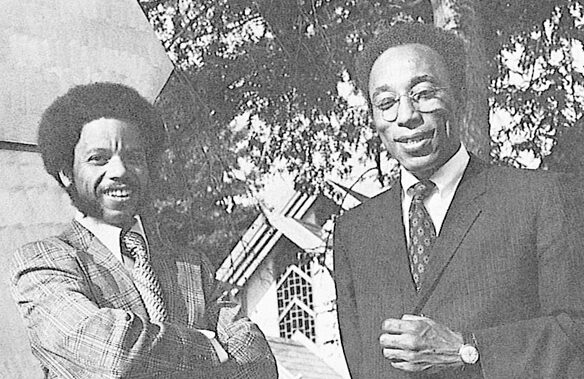
MLK Fellowship: 55 Years of Leadership Martin Luther King, Jr. Fellows Provide 55 Years of Leadership
Established in 1968, the Martin Luther King Jr. Fellowships offered Black veterans who served in the U.S. Armed Forces during the Vietnam Era the opportunity to pursue graduate or professional degrees.
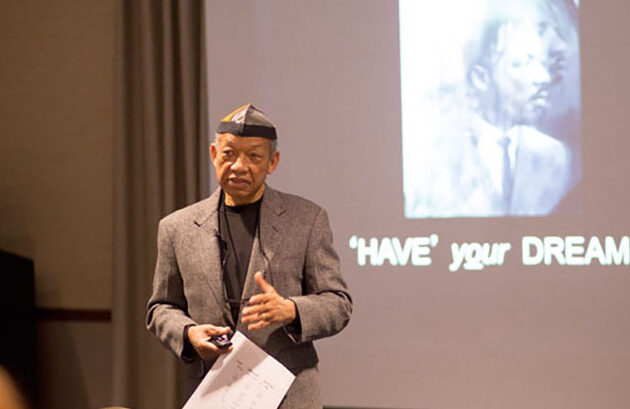
The Architecture of Citizenship
After a stint in the Army during the Vietnam War, Dr. James Chaffers attended the University of Michigan on an MLK Fellowship from Citizens & Scholars in 1969. He became the first Professional Doctorate of Architecture degree in the nation.
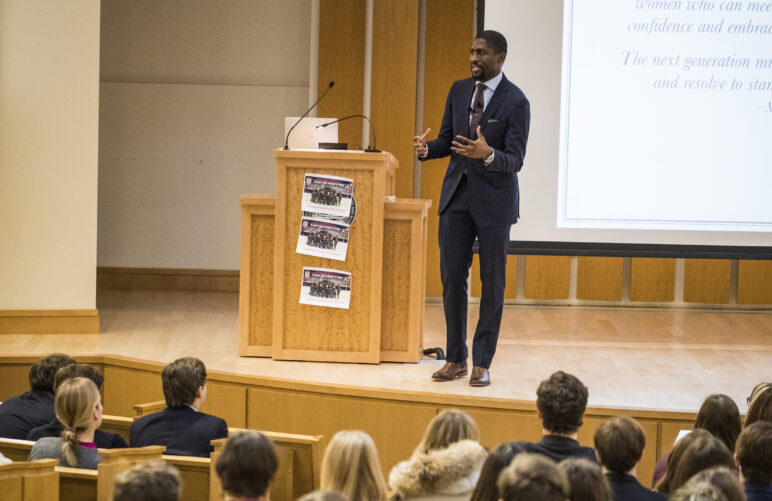
Lessons from MLK: College as a Model of Democracy
C&S Fellow Lerone A. Martin, a recipient of a 2017 Nancy Weiss Malkiel Fellowship, uses his college classroom as a model of democracy.
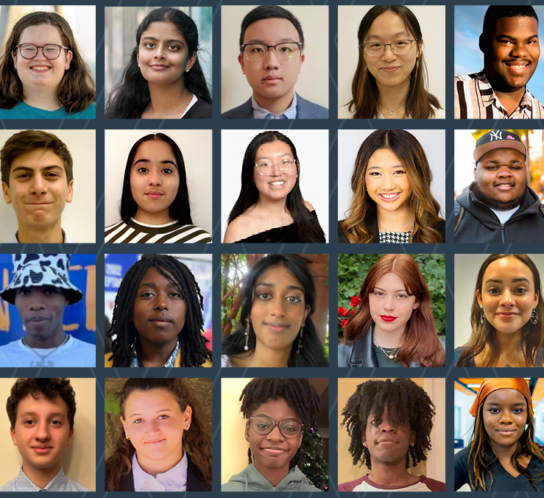
Today: Preparing the Next Generation for Civic Leadership
The Winter 2023 Civics Spring Fellows are young people tackling local community need by designing and executing projects across the country.
New Class of Gen-Zers Named as Civic Spring FellowsStay Engaged
Get More News
Join our mailing list to get more news like this to your mailbox.
Support Our Work
Help us invest in the talent, ideas, and networks that will develop young people as effective, lifelong citizens.
Ways to Support Us